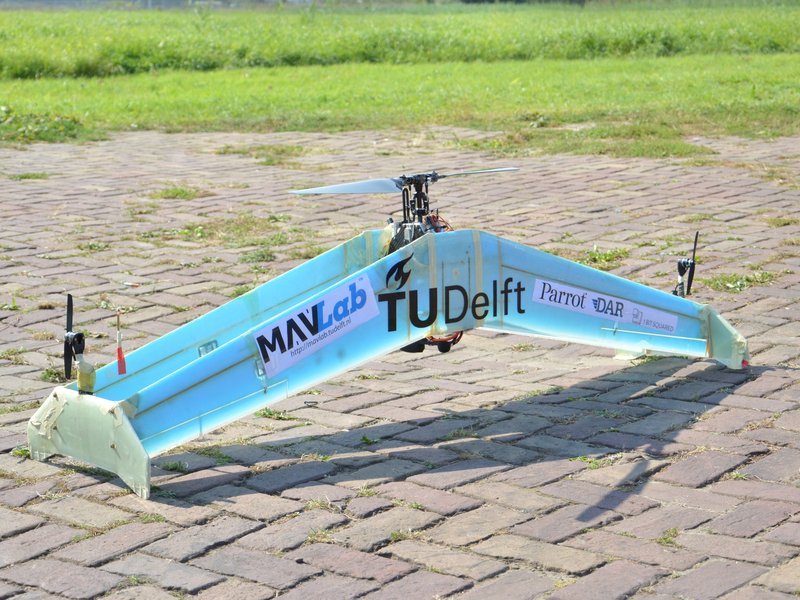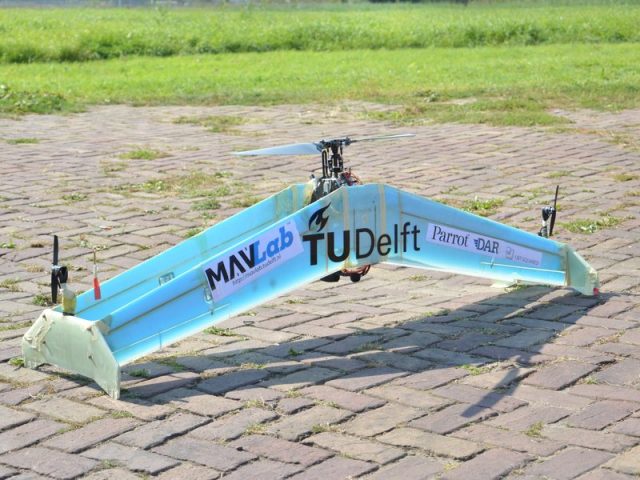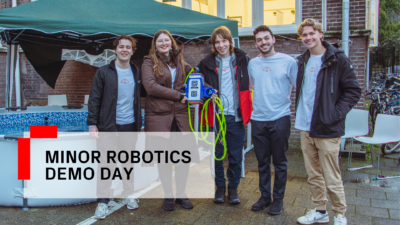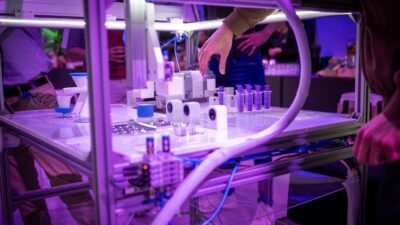Researchers from TU Delft’s Mavlab scored a second place and won the Airmanship award at Australia’s UAV Medical Express Challenge in the last week of September 2016. It was the first time their brand new hybrid drone, the biplane helicopter named ‘delftAcopter’, was put to the test. The delftAcopter will be further developed and tested for applications such as providing medical aid in difficult to reach areas.
The new unmanned aircraft takes to the air like a helicopter before completely tilting 90 degrees and then flying horizontally like an aeroplane. The biplane helicopter has one main rotor and two engines on the tips of its wings. What makes it so innovative is the use of a tailless double-decker wing with a helicopter propeller, put in optimum configuration during take-off, when hovering and during flight.

This design makes it significantly easier to take off and land in difficult areas – from a boat, for example. Researcher Bart Remes from TU Delft’s MAVlab explains: “Vertical take-off (or landing) with horizontal flight is not actually new, but never has it been so elegant. Because there is no tail and the aircraft has just a single double-decker wing, it can remain elegantly upright for take-off and landing.”
Autonomous
Thanks to its design, the delftAcopter, with a wingspan of around 2 m, can both hover in the air and fly at speeds of up to 100 km/h. It can fly as far as 60 km. In addition, this lightweight drone, weighing around 4 kg, can fly for a whole hour completely on electric power.
Flight is also fully autonomous, using GPS and the latest on-board vision technology. “The drone uses its vision technology to select a place to land”, says Remes. “Completely independently, it will select the safest place to land, where there are no obstacles in the way.”
Airmanship award
Team delftAcopter was selected as one of the 10 finalists of the UAV Medical Express Challenge. The challenge: autonomously find ‘Outback Joe’ in an area that is cut off by floods, collect his blood sample, and fly it back. The challenge proved extremely difficult this year: no team managed to complete the challenge, but a few teams came close. Team delftAcopter came second, and was also extended the ‘Airmanship award’ for proving to be a ‘well organized team that stayed focusse even in the full stress of the competition’.



